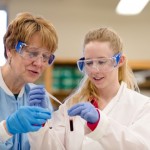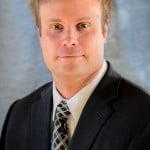
Dr. Joshi congratulates the top 10% Biological Sciences instructors in spring 2016:
Heartiest congratulations to the following faculty and graduate students from Biological Sciences Department who have been identified as one of only 85 campus-wide instructors who received an exceptional “Average of 7 dimensions” student evaluation scores during Spring 2016 semester. Their scores were in the top 10% of similarly sized sections university-wide that had at least a 50% response rate.
Provost Jacqueline Huntoon recently congratulated them for their outstanding accomplishments in teaching.
The following faculty received scores above 4.63 out of 5 on average of 7 elements of university-wide class size group with response rate of >50% on student evaluations of their lecture classes:
- Dr. Amy Marcarelli, Associate Professor
- Ms. Brigitte Morin, Lecturer
- Ms. Karyn Fay, Professor of Practice (Winner of teaching award in 2016)
- Dr. Thomas Werner, Assistant Professor (Winner of teaching award in 2013)
The following instructors received scores above 4.76 out of 5 on “average of 7 elements” of university-wide class size group with response rate of >50% on student evaluations of their classes:
- Jeff Kiiskila, Graduate Student Instructor
- Dr. Michelle Seguin, Instructor
Shekhar
